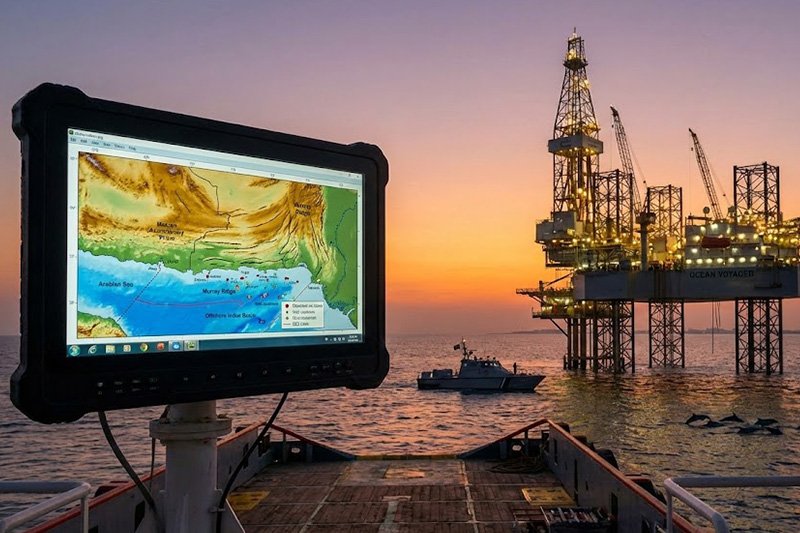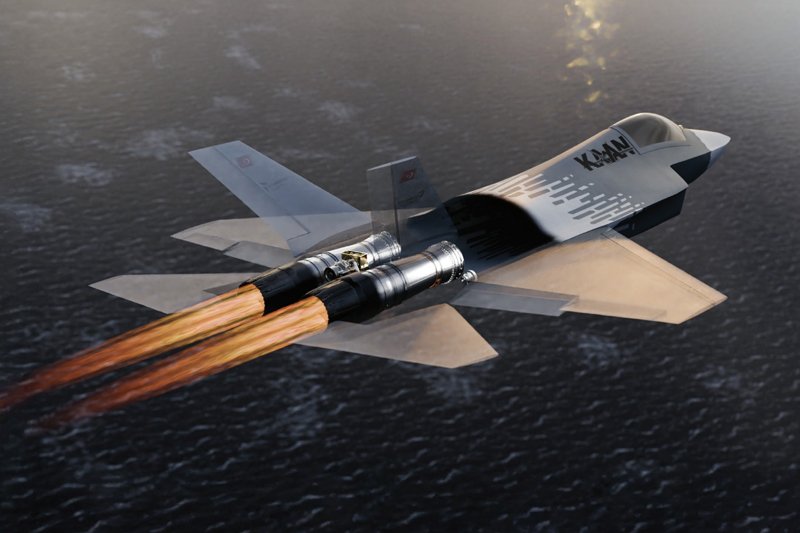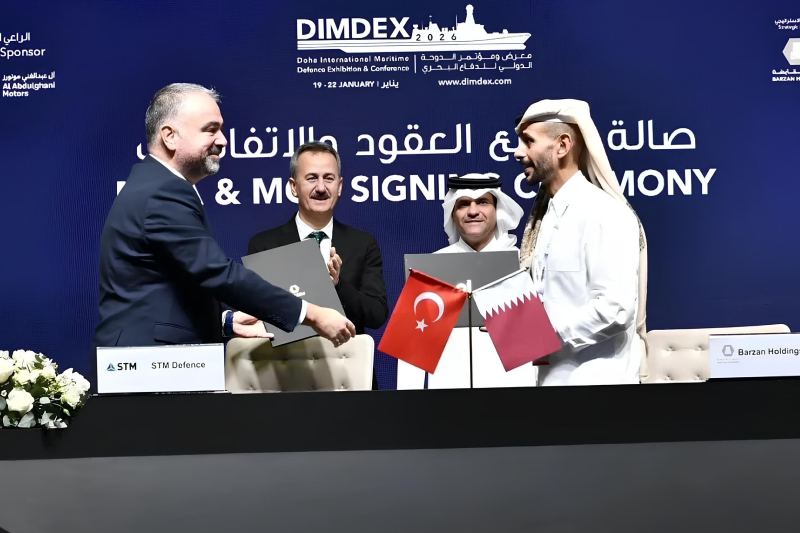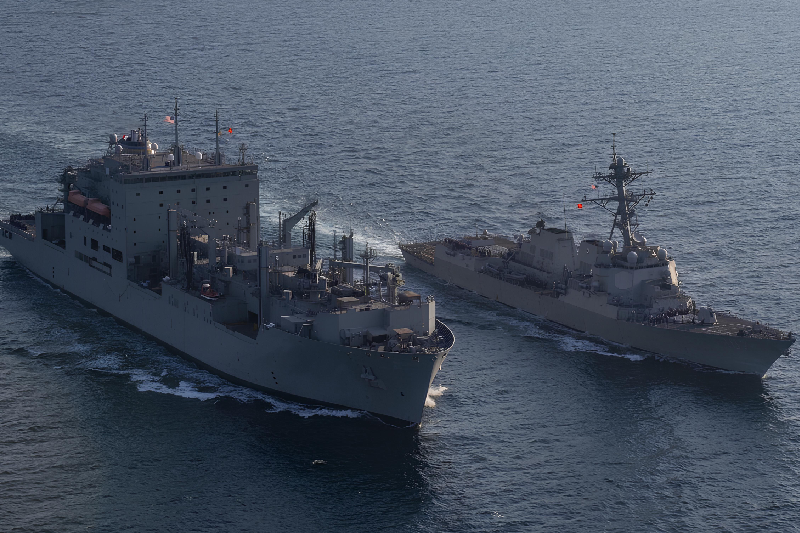Chinese Sanctions Threaten US–Korea Naval Ties
South Korea’s Defense Acquisition Program Administration (DAPA) chief Seok Jong-gun warned this week that Chinese sanctions targeting Hanwha Ocean’s US-based shipbuilding affiliates could eventually affect the US-Korea naval cooperation project known as MASGA (Make American Shipbuilding Great Again). During a National Assembly defense committee hearing Thursday, Seok acknowledged that while there is no immediate impact, the Chinese sanctions prohibiting Chinese entities from conducting business with Hanwha Philly Shipyard and Hanwha Shipping could eventually influence the critical bilateral shipbuilding initiative as component sourcing from outside the United States becomes more challenging.
DAPA Chief Warning on Project Impact
DAPA chief Seok Jong-gun stated during Thursday’s National Assembly defense committee hearing that “while there is no immediate impact, it could eventually influence the MASGA project.” His remarks responded to concerns raised by Representative Yoo Yong-won over projected damages exceeding $60 million, approximately 85 billion won.
The warning highlights growing concerns about how geopolitical tensions between major powers could disrupt critical defense industrial cooperation between allied nations. The sanctions represent China’s response to broader US defense export controls and technology restrictions.
Chinese Ministry of Commerce Sanctions
The Chinese Ministry of Commerce recently announced prohibitions preventing Chinese entities from conducting business with five companies including Hanwha Philly Shipyard and Hanwha Shipping. These sanctions are seen as direct retaliation against US defense export controls targeting Chinese defense and technology sectors.
The sanctions demonstrate China’s willingness to leverage economic tools against South Korean companies participating in US defense initiatives. This approach creates difficult strategic choices for Korean firms seeking to maintain both Chinese commercial relationships and US defense partnerships.
Hanwha Ocean’s Central MASGA Role
Hanwha Ocean, a major player in Korea’s naval shipbuilding industry, serves as a key participant in the MASGA program, a joint initiative aimed at revitalizing US shipbuilding capacity through cooperation with Korean firms. The company’s central role makes it particularly vulnerable to sanctions targeting its US operations.
President Lee Jae-myung visited the Philadelphia yard during his August trip to Washington, underlining Seoul’s commitment to the project. This high-level political support demonstrates the strategic importance both nations place on the shipbuilding cooperation initiative.
Component Sourcing Challenges
Although formal contracts under the MASGA framework have not yet been finalized, Seok warned that sourcing components from outside the US could become more difficult. “There will clearly be an impact, especially when acquiring necessary materials and equipment from outside the United States,” he stated.
The component sourcing challenges reflect the complex global supply chains typical of modern shipbuilding where materials and equipment originate from multiple countries. Chinese sanctions could force costly supply chain reorganization or acceptance of inferior substitute components.
Pending Damage Assessment
DAPA chief Seok clarified that no official damage assessment has been completed despite concerns over potential losses exceeding $60 million. The absence of formal assessment suggests uncertainty about the sanctions’ full scope and long-term implications.
The delayed assessment may reflect difficulties quantifying indirect impacts on supply chains, component availability, and project timelines. Comprehensive damage evaluation requires detailed analysis of procurement contracts, supplier relationships, and alternative sourcing options.
Reciprocal Defense Procurement Agreement Status
Seok addressed South Korea’s efforts to finalize a Reciprocal Defense Procurement Agreement (RDP-A) with the United States, which would allow Korean defense products to be treated as domestically produced items in U.S. government acquisitions. This agreement could partially mitigate sanctions impacts by facilitating Korean component use.
The agreement currently awaits approval by the US National Security Council, with Seok emphasizing its importance to the MASGA initiative. “We are conveying our position with full clarity,” he stated, indicating active diplomatic engagement on the issue.
KDDX Program Delays
On a separate issue, Seok acknowledged delays in the Korea Destroyer Next-Generation (KDDX) program, South Korea’s indigenous stealth destroyer development project. The KDDX project involves building six ships at an estimated cost of 7.8 trillion won ($5.7 billion).
The program was initially slated to move into detailed design and lead ship construction in 2024, but legal disputes and competition between Hanwha Ocean and HD Hyundai Heavy Industries have stalled progress. These delays compound challenges facing Korean naval shipbuilding amid international sanctions pressures.
Shipbuilder Competition Complications
Legal disputes and competition between Hanwha Ocean and HD Hyundai Heavy Industries have created significant obstacles for the KDDX program. “Looking back, we should have made decisions more actively in the early stages,” Seok admitted, acknowledging management shortcomings.
“Now, resolving the problems is taking too much time and money,” he added, indicating that program delays have created substantial cost overruns. The competitive tensions between Korea’s two largest naval shipbuilders have undermined national defense priorities.
HD Hyundai Security Penalty Extension
Tensions escalated earlier this year when DAPA extended its security-related penalty against HD Hyundai Heavy Industries by another year, citing a military confidentiality breach. This move deepened the standoff between Korea’s two largest naval shipbuilders.
The security penalty restricts HD Hyundai’s participation in sensitive defense projects, effectively advantaging Hanwha Ocean in certain competitions. However, the restriction also limits DAPA’s options for managing major naval programs requiring competition among qualified builders.
MASGA Strategic Importance
The MASGA (Make American Shipbuilding Great Again) initiative represents a strategic effort to revitalize US naval shipbuilding capacity through cooperation with allied nations possessing advanced shipbuilding capabilities. South Korea’s participation leverages its world-class commercial and naval shipbuilding expertise.
The program aims to address critical shortfalls in U.S. naval shipbuilding capacity that have created acquisition delays and cost overruns. Korean participation offers potential solutions through technology transfer, workforce development, and expanded production capacity.
Geopolitical Tensions Impact
The Chinese sanctions demonstrate how geopolitical tensions between major powers increasingly affect defense industrial cooperation among allies. Korean companies find themselves caught between competing pressures from their largest trading partner and most important security ally.
This dynamic creates difficult strategic choices for Seoul as it seeks to maintain economic relationships with China while strengthening defense partnerships with the United States. The competing pressures complicate long-term strategic planning for Korean defense companies.
Supply Chain Vulnerability
The sanctions highlight vulnerabilities in global defense supply chains where critical components may originate from geopolitically rival nations. Modern weapons systems typically incorporate components from multiple countries, creating dependencies that adversaries can exploit.
The MASGA project’s potential disruption demonstrates the strategic importance of supply chain security and the need for allied nations to develop resilient procurement networks. Reducing dependence on potential adversary suppliers requires substantial investment and time.
Alternative Sourcing Strategies
Responding to sanctions may require developing alternative sourcing strategies that avoid Chinese suppliers while maintaining quality and cost-effectiveness. This transition could involve identifying suppliers in allied nations, developing indigenous production capabilities, or accepting performance compromises.
Alternative sourcing typically involves higher costs and longer lead times compared to established supply relationships. The transition challenges may delay MASGA implementation while increasing program costs beyond initial projections.
US-Korea Alliance Implications
The sanctions’ impact on bilateral defense cooperation tests the US-Korea alliance’s resilience amid intensifying great power competition. Effective response requires coordinated allied approaches that protect defense industrial cooperation from economic coercion.
The situation demonstrates the alliance’s need for mechanisms protecting joint programs from third-party interference. Successful navigation of these challenges could strengthen alliance cooperation frameworks while establishing precedents for future situations.
National Security Council Role
The pending Reciprocal Defense Procurement Agreement awaits US National Security Council approval, highlighting the agreement’s strategic significance beyond routine commercial arrangements. NSC involvement indicates recognition of the agreement’s implications for alliance cooperation and strategic competition with China.
NSC deliberations likely weigh the agreement’s alliance benefits against potential escalation of economic tensions with China. The decision timeline may reflect careful consideration of complex strategic tradeoffs involving economic, diplomatic, and security factors.
Don’t miss this: Chinese Combat Drones Cross 5,000 Flight Hours In Saudi Arabia
Program Management Lessons
DAPA chief Seok’s acknowledgment of early-stage decision-making failures in the KDDX program offers important lessons for managing complex defense programs amid competitive and geopolitical pressures. More active early management might have prevented the costly delays currently affecting the program.
The experience suggests that defense acquisition agencies must anticipate and address potential disputes proactively rather than allowing them to escalate into program-threatening obstacles. Clear decision frameworks and dispute resolution mechanisms prove essential for maintaining program momentum.
Future Cooperation Resilience
Successfully navigating current challenges could establish frameworks for more resilient defense industrial cooperation capable of withstanding geopolitical pressures. These frameworks might include diversified supply chains, enhanced coordination mechanisms, and contingency planning for various disruption scenarios.
The MASGA initiative’s ultimate success or failure may influence future allied defense industrial cooperation approaches. Lessons learned could inform policy decisions about supply chain security, technology protection, and economic statecraft in defense contexts.
Keep connected with us at Facebook, Twitter, YouTube, Instagram & TikTok for latest defense happening around the globe.
Discover more from International Defence Analysis
Subscribe to get the latest posts sent to your email.












